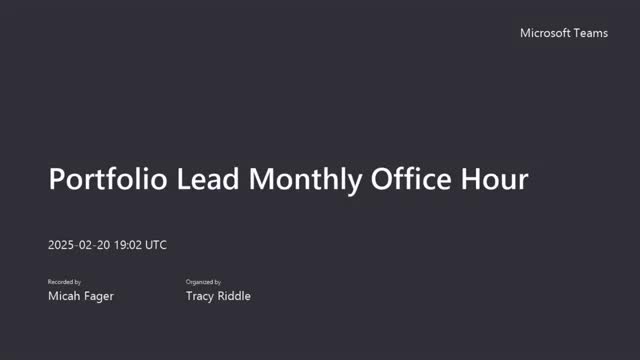TDOE staff outline TNPortfolio deadlines, upload rules and peer-review hiring
Get AI-powered insights, summaries, and transcripts
Subscribe
Summary
Tracy Riddle, Director of Educator Effectiveness at the Tennessee Department of Education, told district administrators during a state webinar that the TNPortfolio platform will require districts to meet an educator-submission deadline of May 5 and that teacher scores and a samples report will be released after June 23, 2025.
Tracy Riddle, Director of Educator Effectiveness at the Tennessee Department of Education, told district administrators during a state webinar that the TNPortfolio platform will require districts to meet an educator-submission deadline of May 5 and that teacher scores and a samples report will be released after June 23, 2025.
Riddle said administrators should monitor several new reports in the platform (Reports, View Teacher Submissions, Manage Teacher Collections and Rubrics) and explained how portfolio-status labels work. "If you see this status not started, that means that the teacher has not uploaded any student work," Riddle said. She urged hosts to verify roster and login status, and to use the View Teacher Submissions tab to inspect attached student artifacts.
The guidance focused on four operational areas administrators will need to manage: report navigation and portfolio-status definitions; rules for editing collections or standards; video and file-upload requirements; and peer-review hiring, training and pay. Riddle summarized platform rules for collection changes: administrators can edit a teacher's chosen collection or rubric only before the teacher uploads work; once uploads begin, collections and standards are locked to protect teachers. "If someone says they uploaded work and they realized they have the wrong standard, they're not stuck with that. We can change it," she said, directing administrators to contact portfolio.questions for cases where work must be removed and re-associated with a new standard.
On video and file handling, staff explained that the platform converts some formats to MP4 and that conversions can take up to 24 hours. Administrators were told that a .mov file may show a preview message while converting and that long videos take longer to upload. The platform accepts files up to 5 GB and recommends an ideal movie size of about 1 GB; teachers should split unusually long recordings into multiple uploads. Staff repeatedly cautioned that uploads saved only to Google Drive must first be downloaded to a local device for upload—the platform will not import directly from Google Drive.
Riddle flagged a specific data window issue: any student work uploaded between January 30 at 02:30 and February 5 was not stored correctly while the team increased file-size limits, and teachers who uploaded during that interval must remove and reload affected files so peer reviewers can view them. She also noted that certain image file types (.xlsx or similarly named image exports) are not previewing in the platform and recommended saving pictures as PDFs until the tech team resolves the preview bug.
Staff described the peer-review application and scoring process. Peer reviewers are recruited by application through March, must be available for scoring from May 27 through June 13, participate in mandatory training on April 17, and attend model-specific training sessions the week of May 12–16. Riddle said selected reviewers must score at least 20 collections to receive payment. "To get paid, they must score a minimum of 20 collections. Their pay is $25 per collection, and they will also receive $50 on top of that amount for attending the two required trainings," she said. Staff emphasized confidentiality and asked applicants to have content-area and grade-level experience, accuracy with rubrics and comfort with the platform.
On student privacy and media releases, an administrator asked whether district media-release forms cover videotaping for portfolio use. Riddle said districts do not need a separate release: existing signed district media-release forms that permit videotaping and photography cover portfolio recordings. If a parent withholds permission, that student's work should not be used in the portfolio.
Next steps Riddle requested of administrators were clear: share the video-guidance materials and the peer-review application with teachers, monitor teacher progress in the Reports tab, remind teachers about the May 5 deadline and ensure teachers who uploaded during the January 30–February 5 window reupload affected files. Staff provided an email contact for troubleshooting and content questions: portfolio.questions@tn.gov.
The webinar included additional support staffing introductions (Amy Floyd, Director of Data and District Support; Taylor Reed, team lead; Micah Fager, platform page designer; Candace Robinson, team contractor) and a promise to post the recording and the PowerPoint to the team website immediately after the communications team returns the recording.
No formal votes or policy changes were taken during the session; staff provided operational guidance and instructions for administrators and teachers.
